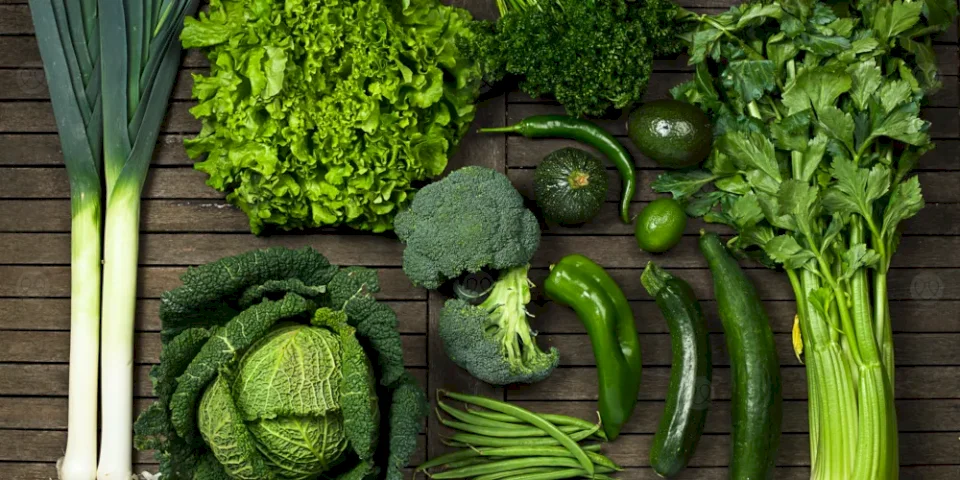
A Daily Cup of Leafy Vegetables Protects the Heart and Blood Vessels
SadaNews - A recent study has shown that consuming an extra serving of leafy vegetables daily protects the heart. The study linked the intake of Vitamin K1, found in spinach, kale, and broccoli, to a decreased risk of death from heart disease.
According to what was published on the "New Atlas" website, cardiovascular diseases are the leading cause of death globally. Atherosclerosis, where plaques accumulate inside the arteries, narrowing them and obstructing blood flow, is the main cause of death because it often leads to heart attacks and strokes, which are the most severe forms of cardiovascular diseases.
Vitamin K1
A study conducted by "Edith Cowan University", "Western Australia University", and the "Danish Cancer Society" revealed the potential to reduce atherosclerosis risk by increasing Vitamin K1 levels through consuming more leafy and cruciferous vegetables.
Montana Dubois, the lead researcher in the study from "East Carolina University", stated: "Leafy and cruciferous vegetables, such as spinach and broccoli, contain Vitamin K1, which may help prevent the calcification of blood vessels that is characteristic of cardiovascular diseases."
119 Micrograms Daily
The study results showed that women who consumed higher amounts of Vitamin K1 had thinner carotid artery walls, which is a good sign as it indicates reduced atherosclerosis in the early stages. Over 14.5 years, women who consumed the highest amount of Vitamin K1 (about 119 micrograms per day) had a 43% lower risk of death from severe carotid atherosclerosis compared to those who consumed the lowest amount (which was about 49 micrograms per day).
There were also significantly lower deaths from heart diseases and strokes among women who consumed higher amounts of Vitamin K1. While there was a trend toward lower hospitalization rates for severe carotid atherosclerosis in women who consumed higher amounts of Vitamin K1, it was not statistically significant.
A recent study has shown that consuming an extra serving of leafy vegetables daily protects the heart. The study linked the intake of Vitamin K1, found in spinach, kale, and broccoli, to a decreased risk of death from heart disease.
According to what was published on the "New Atlas" website, cardiovascular diseases are the leading cause of death globally. Atherosclerosis, where plaques accumulate inside the arteries, narrowing them and obstructing blood flow, is the main cause of death because it often leads to heart attacks and strokes, which are the most severe forms of cardiovascular diseases.
Vitamin K1
A study conducted by "Edith Cowan University", "Western Australia University", and the "Danish Cancer Society" revealed the potential to reduce atherosclerosis risk by increasing Vitamin K1 levels through consuming more leafy and cruciferous vegetables.
Montana Dubois, the lead researcher in the study from "East Carolina University", stated: "Leafy and cruciferous vegetables, such as spinach and broccoli, contain Vitamin K1, which may help prevent the calcification of blood vessels that is characteristic of cardiovascular diseases."
119 Micrograms Daily
The study results showed that women who consumed higher amounts of Vitamin K1 had thinner carotid artery walls, which is a good sign as it indicates reduced atherosclerosis in the early stages. Over 14.5 years, women who consumed the highest amount of Vitamin K1 (about 119 micrograms per day) had a 43% lower risk of death from severe carotid atherosclerosis compared to those who consumed the lowest amount (which was about 49 micrograms per day).
There were also significantly lower deaths from heart diseases and strokes among women who consumed higher amounts of Vitamin K1. While there was a trend toward lower hospitalization rates for severe carotid atherosclerosis in women who consumed higher amounts of Vitamin K1, it was not statistically significant.
Recommended Daily Amount
Dr. Mark Sim, a senior researcher at the School of Medical and Health Sciences at "East Qunatan University" and a co-researcher for the study, said: "This study found that women who consumed about 30% higher doses of Vitamin K1 than currently recommended in the Australian Dietary Guidelines had a lower long-term risk of developing severe carotid atherosclerosis."
The recommended daily intake of Vitamin K1 in the United States is 120 micrograms for adult males and 90 micrograms for females. In Australia and New Zealand, it is 70 micrograms for adult males and 60 micrograms for females.
Types and Amounts
According to the European Journal of Nutrition, which published the study results, a cup of raw kale contains 472 micrograms of Vitamin K1, and a cup of raw spinach contains 145 micrograms. Half a cup of cooked broccoli provides 110 micrograms, and half a cup of cooked Brussels sprouts provides 109 micrograms.
Half a cup of cooked cabbage provides 82 micrograms of Vitamin K1. It is simply achievable to reach the goal of consuming 120 micrograms daily without needing much effort.

Birdwatching Tourism: Pleasure, Excitement, and Unexpected Scientific Discoveries

Dopamine Boosting and Attention Weakness: Beware of Digital Drugs Inside Your Phone

انطلقت منذ 20 عاماً.. ما لا تعرفه عن منصة "روبولوكس"

India Offers Tax Breaks Until 2047 to Attract Cloud Computing Giants

Do You Write To-Do Lists by Hand or on Your Phone? 9 Traits Distinguishing the First Group

Developments in the Health Condition of Actress Susan Badr

How Artificial Intelligence Steals Our Faces and Our Money?

